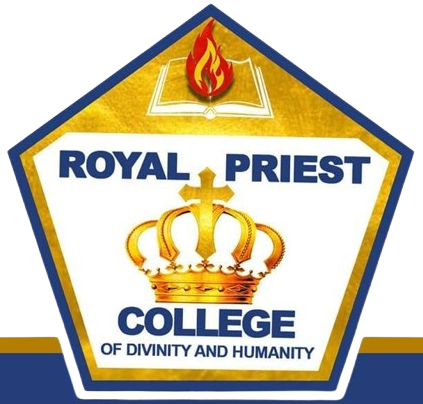CALL US NOW: (+233) 055 551 5232
Faculty for Awarding Good Leadership & Governance in Politics
Faculty for Awarding Outstanding Leadership, Integrity, & Excellence in Political Governance

Excellence in leadership and governance in politics is a biblical mandate for Christians. The Bible teaches that leaders should be just, fair, and upright in their governance (Proverbs 29:4, Psalm 82:3-4). They are called to act with wisdom, integrity, and humility, seeking the well-being of the people they serve (Proverbs 11:14, 1 Timothy 2:1-2). Leaders are accountable to God for their actions and are called to lead with righteousness and justice (Psalm 72:1-2).
Furthermore, Christians are called to pray for their leaders and actively engage in the political process to promote good governance and justice (1 Timothy 2:1-2, Romans 13:1-7). This includes holding leaders accountable to biblical standards and advocating for policies that align with God’s values of justice, mercy, and compassion (Micah 6:8, Proverbs 14:34).
Leadership and governance in politics are ordained by God for the ordering of society and the maintenance of justice and order. Romans 13:1-7 teaches that all authority is established by God, and those in positions of leadership are ultimately accountable to Him. Proverbs 29:2 states that when the righteous are in authority, the people rejoice, but when the wicked rule, the people groan.

LEADERSHIP AND GOVERNANCE IN POLITICS
Leadership in politics should be characterized by humility, wisdom, and a commitment to serving the common good. Proverbs 11:14 advises that in a multitude of counselors there is safety, highlighting the importance of seeking wise counsel and collaboration in decision-making processes. Just as Jesus taught that the greatest among us should be servants (Matthew 20:26-28), political leaders should prioritize the needs of their constituents above their own ambitions.
GOOD POLITICAL BEHAVIOR
Good political behavior is characterized by seeking the common good, promoting justice, and upholding moral principles. Christians are called to be salt and light in the world, influencing political decisions for the betterment of society (Matthew 5:13-16). This includes advocating for the marginalized and oppressed (Proverbs 31:8-9) and standing against injustice (Isaiah 1:17).
Additionally, Christians are called to submit to governing authorities (Romans 13:1) and pray for those in leadership positions (1 Timothy 2:1-2). However, this does not mean blindly following political leaders or policies that go against biblical principles. Rather, Christians should critically evaluate political decisions in light of scripture and act accordingly.

CORRELATION BETWEEN THEOLOGY AND POLITICAL SCIENCE
The correlation between theology and political science lies in the understanding that our beliefs about God and His Word inform our views on government, social justice, and human rights. The Bible teaches that God is sovereign over all nations and rulers (Psalm 22:28, Daniel 2:21), and that Christians are called to obey earthly authorities (Romans 13:1). Therefore, our theological beliefs shape our understanding of the role of government in upholding justice, protecting the vulnerable, and promoting righteousness.
POLITICIANS AND POLITICS
Politicians and politics are important aspects of society that should be approached with wisdom and discernment. The Bible teaches that Christians are called to be salt and light in the world (Matthew 5:13-16), which includes engaging in the political sphere to promote justice and righteousness. However, it is crucial for believers to prioritize their allegiance to God above any political party or ideology (Matthew 22:21).
While it is appropriate for Christians to be involved in politics and to advocate for moral principles, it is important to remember that our ultimate hope is not in any human leader or government, but in Jesus Christ as our King (Philippians 3:20). Therefore, our engagement in politics should be characterized by humility, love, and a commitment to speaking truth in love (Ephesians 4:15).
Why Honoring Good Politicians Is Important

Honoring good politicians is important because it aligns with biblical principles of respecting authority and seeking the welfare of the society in which we live. Romans 13:1-7 teaches that all authority is established by God, and we are called to submit to those in positions of power. By honoring and respecting good politicians, we are acknowledging the role they play in governing and upholding justice in society.
Christians are called to honor and respect those in authority, including political leaders, as stated in Romans 13:1-7. This includes obeying laws and praying for those in positions of power (1 Timothy 2:1-2). Good leadership in politics is important for maintaining order and justice in society, as seen in Proverbs 29:2, which states that when the righteous are in authority, the people rejoice.
However, Christians must also be discerning and hold leaders accountable to biblical standards. This means evaluating policies and decisions in light of God’s Word and speaking out against injustice and corruption. Proverbs 31:8-9 instructs us to “speak up for those who cannot speak for themselves, for the rights of all who are destitute. Speak up and judge fairly; defend the rights of the poor and needy.”
Why Conferring Honorary Doctorate Degrees
To Politicians Is Important
Honorary doctorate degrees hold significant symbolic value, recognizing individuals for their contributions to society, leadership, and achievements. By conferring such degrees to politicians, institutions are acknowledging their dedication to public service and the impact they have made on their communities. This gesture can help foster a positive relationship between academia and government, promoting collaboration and mutual respect.
Additionally, receiving an honorary doctorate can enhance a politician’s credibility and influence, providing them with a platform to advocate for important causes and engage with a wider audience. This recognition can also serve as a morale booster, motivating the recipient to continue their work with renewed passion and dedication.
From a biblical perspective, honoring those in positions of authority is emphasized in the Bible. Romans 13:1-7 teaches about submitting to governing authorities, recognizing their role in maintaining order and justice in society. Honoring politicians with honorary degrees can be seen as a reflection of this principle, showing respect for their God-given leadership roles.
Overall, conferring honorary doctorate degrees to politicians is important as it acknowledges their contributions, fosters positive relationships, enhances credibility, and aligns with biblical principles of honoring authority.
Requirements from politicians for receiving Honorary Doctorate Degrees in Leadership and Governance from Royal Priest College of Divinity and Humanity

Politicians who seek to receive an Honorary Doctorate Degree in leadership and governance from Royal Priest College of Divinity and Humanity should meet certain requirements based on biblical principles. These requirements should include a commitment to uphold moral values and integrity in their leadership, a dedication to serving the common good and promoting justice for all individuals (Proverbs 29:4, Micah 6:8). Politicians should demonstrate humility and a willingness to listen to wise counsel, as well as a track record of promoting peace and reconciliation in their communities (Proverbs 11:14, Matthew 5:9).
Additionally, politicians seeking this honorary degree should have a clear understanding of the responsibilities that come with leadership, including the importance of stewardship, accountability, and servant leadership (Luke 12:48, 1 Peter 5:2-3). They should also exhibit a commitment to fighting against corruption, oppression, and injustice, and strive to create a society that reflects God’s values of love, mercy, and compassion (Isaiah 1:17, James 1:27).
Ultimately, politicians who aspire to receive an Honorary Doctorate Degree in leadership and governance from Royal Priest College of Divinity and Humanity should embody the principles of servant leadership, moral integrity, and a dedication to promoting justice and peace in their communities.
